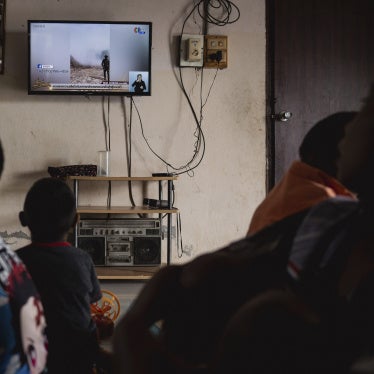Indonesia’s President Joko Widodo did something remarkable last Sunday.
He publicly recognized that Indonesia has a problem with rising religious intolerance and called on Indonesia’s largest Muslim organization, the Nahdlatul Ulama (NU), to promote “moderate Islamic values” as a means of countering the country’s often-violent militant Islamists.
Widodo’s recognition of Indonesia’s rising religious intolerance is a welcome contrast to that of his predecessor, Susilo Bambang Yudhoyono, who turned a blind eye to the problem during his decade as president. Yudhoyono’s failure to protect religious minorities and bring their persecutors to justice effectively made religious minorities, including several Christian groups, Shia, and the Ahmadiyah (who consider themselves Muslims but are viewed as heretics by some other Muslims), targets of harassment, intimidation, threats, and, increasingly, mob violence.
Widodo’s call for the NU to address religious intolerance is also a tacit recognition that both it and Indonesia’s second largest mainstream Muslim mass organization, Muhammadiyah, are passively complicit in the problem of worsening religious intolerance. Neither organization has publicly opposed the 2005 fatwa by Indonesia’s semiofficial top Muslim clerical body which ruled that the Ahmadiyah community deviated from Quranic teachings. In January 2014, NU’s general secretary, Dr. H. Marsudi, soft-pedalled the danger of religious intolerance and related violence by denying that such incidents were religion-related – describing them instead as the result of “other factors," such as romantic entanglements and automobile traffic.
But Widodo is fooling himself if he thinks that he can outsource a solution to Indonesia’s religious intolerance problem to NU and Muhammadiyah. His first order of business should be putting an end to the Indonesian government’s well-documented role in victimizing religious minorities. Widodo can start by pursuing swift punishment of police and government officials who are too often passively or actively complicit in incidents of harassment, intimidation, or violence against religious minorities. He should also order a review of existing laws, regulations, and decrees on religion to identify provisions at odds with freedom of religion and freedom of conscience, and create a timetable for revising or repealing the offending provisions. Indonesian government institutions that have played a role in violating religious minorities’ rights also demand scrutiny. They include the Ministry of Religious Affairs and the Coordinating Board for Monitoring Mystical Beliefs in Society (Bakor Pakem) under the attorney general’s office.
Until Widodo’s government prioritizes the protection of religious minorities and implements a zero-tolerance policy for abuses by Islamist militants, Indonesia’s religious minorities will continue to live in fear.









